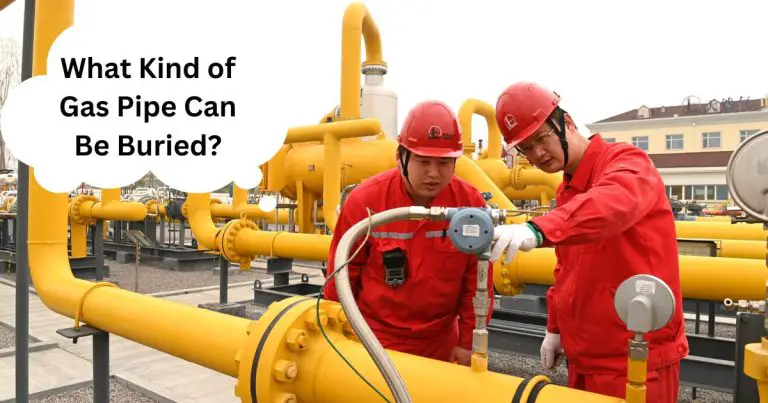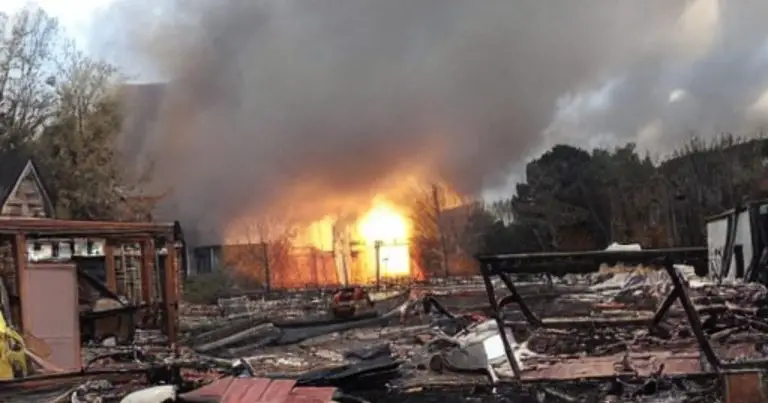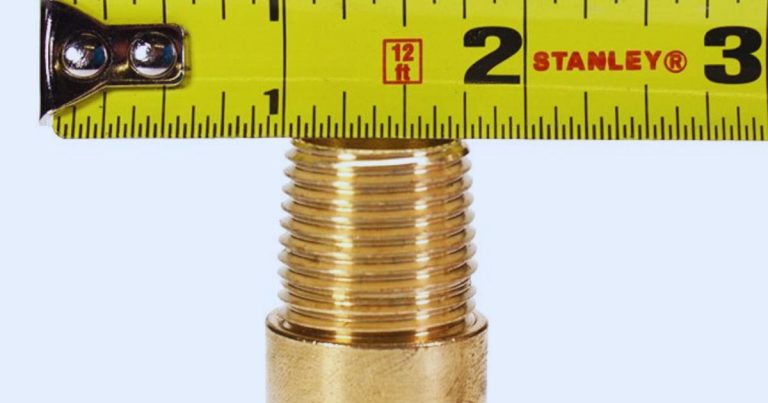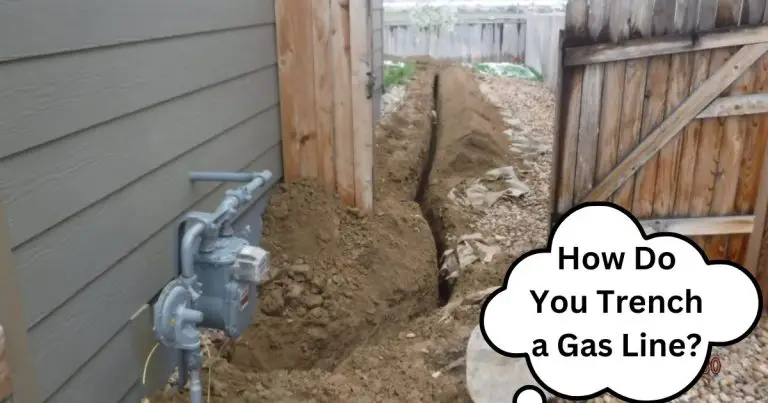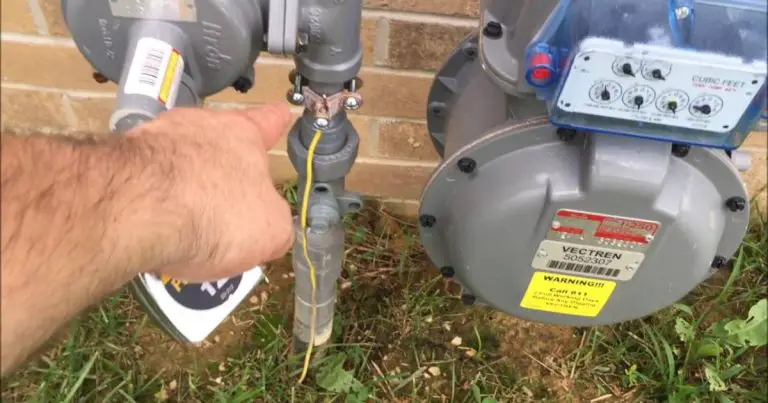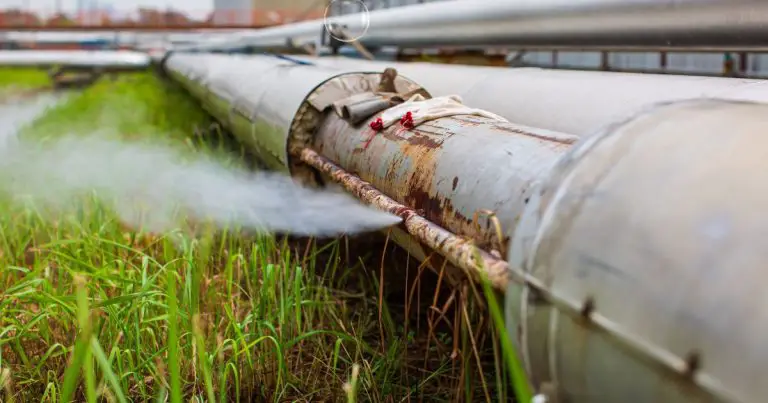Can Gas Pipe Be Run Above Ground? (EXPLAINED!)
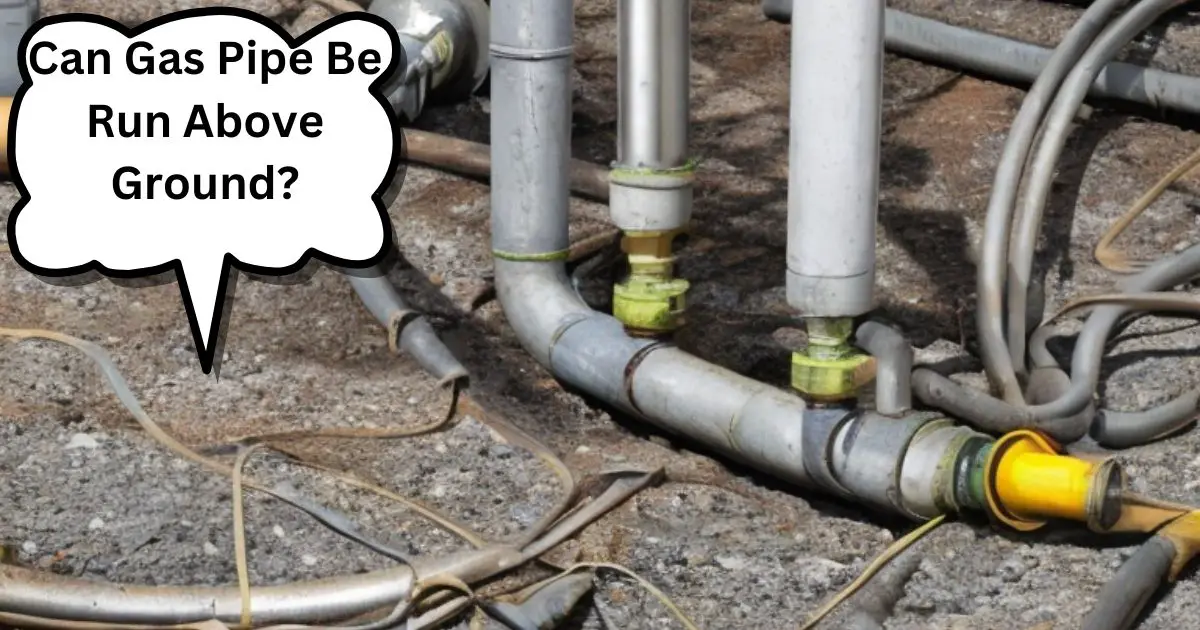
Key Takeaways
- Safety and Professional Installation Are Crucial: Whether running a gas pipe above ground or under, ensuring the installation meets safety standards and is performed by a licensed professional is paramount. This safeguards against leaks, corrosion, and potential accidents, ensuring the system’s integrity and the safety of occupants.
- Considerations for Above-Ground Installation: Above-ground gas piping offers distinct advantages, including easier access for maintenance and inspection. However, it requires proper insulation, protection from the elements, and adherence to local building codes. The decision between above-ground and underground installation should consider environmental conditions, cost, and aesthetic impact.
- Regular Maintenance to Prevent Common Issues: Regular inspections and maintenance can prevent common problems such as leaks, blockages, and corrosion in gas lines. A well-maintained gas line ensures efficient operation, safety, and longevity of the gas supply system, reducing the risk of emergencies and costly repairs.
Running a gas pipe above ground is a great way to save time and money – without sacrificing safety.
With the right materials, knowledge, and care taken in installation, you can easily have your new gas line up and running with minimal disruption to your day-to-day life.
In this article we will take a look at the steps involved in setting up an above ground gas pipe for residential use.
Can you run a gas line under the floor?
Yes, you can run a gas line under the floor.
This is a common practice in many homes and businesses, as it allows for a more efficient and aesthetically pleasing way to install a gas line.
When running a gas line under the floor, it is important to ensure that the line is properly installed and that all safety precautions are taken.
This includes making sure that the line is properly insulated and that the area around the line is free of any combustible materials.
Additionally, it is important to ensure that the line is properly vented and that the gas line is not running through any areas that could be exposed to water or moisture.
Finally, it is important to have a professional inspect the line before it is used to ensure that it is safe and properly installed.
Can Gas Pipe Be Run Above Ground?
Generally Speaking Yes, gas pipes can be run above ground. In some cases, it is necessary to run gas pipes above ground in order to ensure that they are properly ventilated and to prevent any potential safety hazards. This is especially true in areas where there is a risk of flooding or where the ground is too hard to dig. Above ground gas pipes must be properly insulated and protected from the elements to ensure that they are safe and secure. Additionally, they must be installed in accordance with local building codes and regulations.
When should gas pipes be run underground?
There are a few reasons why gas pipes may be run above ground, but they are generally more costly and less practical.
Install gas lines above ground:
The first reason to install gas lines above ground is when you do not have the space for them inside your home or business.
This is often the case when an existing trench or other man-made hole is already in place.
In this situation, it may be cheaper and faster to simply route the gas line outside rather than having to start from scratch and deal with the potential complications that come with installing a complicated underground system.
Trying to connect an appliance:
Another reason why gas pipes may be run above ground is when you are trying to connect an appliance that does not require a direct connection to the main pipeline (like a clothes dryer).
In this case, the pipe will need to go through an intermediary device known as a distribution panel.
This panel is usually located near the main entrance of your home or business and will contain valves that allow gas to be distributed to the various appliances in the area.
No suitable location:
The final reason why gas pipes may be run above ground is when there is no suitable location inside your home or business for them to be installed.
This can happen if you are retrofitting an older home or if you are working on a construction project that does not include access to traditional trenches.
In these cases, it may be necessary to run the gas line outside and then route it back inside later on.
Exploring the Pros and Cons of Running Gas Pipes Above Ground:
Like any other infrastructure project, there are pros and cons associated with running gas pipes above ground.
To spell it out succinctly: there’s no denying the benefits of having a piping system concealed within the earth and out of sight.
Not only does this provide an unobtrusive aesthetic appeal but also improves property value!
However, there is also room for discontentment when considering that running gas pipes above ground can pose several challenges.
This may be due to potential damage from digging or frost; problems during installation; or even issues arising from poor design decisions when building structures around them like electrical outlets and suchlike.
On the plus side, though – by providing an extra layer of security – running gas pipes below the street level provides an immediate sense of reassurance that plumes of flame won’t burst forth in dramatic fashion should a leak occur.
So, in the end, it comes down to a case-by-case basis.
Do your research before making any decisions and be sure to consult with an experienced gas line contractor if you have any doubts or concerns about running your gas lines above ground.
How to Install an Above-Ground Natural Gas Line Safely?
To ensure a safe installation, please ensure that the ground has not physically yielded due to rain, snow or mudslides.
Ensure that your pipe is adequately encased with reinforced concrete or steel casing; otherwise it could be susceptible to damage from either physical force or even seismic activity.
If you’re constructing a home, consider utilizing the existing utility lines running along property lines as an ideal guide for where to drill your new gas line.
For those who are doing work within an existing structure and plan to remove walls or floors – such tasks should be undertaken before initiating any trenching or excavation.
Don’t forget! Always use a licensed contractor when installing gas lines in order to avoid any costly penalties!.
What to do if you find a leak in your gas line?
If you discover a leak in your gas line, the first thing to do is shut off the valve leading to where the leak is occurring.
If possible, contact an expert for assistance with identifying the source of the problem and securing it in place; otherwise they may have to cut out sections of pipe in order
Don’t panic! Gas service line leaks can be addressed quickly and efficiently.
We offer a variety of services designed to restore your home’s comfort while making any necessary repairs.
Benefits of Above Ground Piping:
If you’re constructing an underground home that must have an above ground electrical outlet, there could be several factors that come into play.
For instance, if the parcel upon which it will be situated does not already possess one; or if it is located in a remote area away from any electrical power source – then this may necessitate the use of an additional installation method.
On top of this, there are many benefits provided by using an add-on component like an electrical cable:
Possessing the ability to run your electricity underground can enhance security and peace of mind.
If you are experiencing an outage, disconnecting your home’s current circuit and turning on a generator can help ensure its safety without incurring any risk of electrocution.
Furthermore, proper installation of a gas line can improve the overall value of your property.
In addition to its practical applications, installing an above ground gas line also increases the aesthetic appeal of your home.

Disadvantages of Above Ground Piping:
1: Cost –
Above ground piping is more expensive than underground piping.
2: Maintenance –
Above ground piping requires more frequent inspections and maintenance than underground piping.
3: Limited Accessibility –
Above ground piping is more difficult to access for repairs and inspections than underground piping.
4: Vulnerability to Weather –
Above ground piping is vulnerable to the elements such as wind, rain, hail, and snow.
5: Aesthetics –
Above ground piping can be unsightly and may have a negative impact on the appearance of a home or business.
Common Problems with an Above-Ground Natural Gas Line:
If you’re eager to grasp a fundamental understanding of above ground gas pipe installation, we offer some essential insights.
Here are some common issues that may arise with this method:
- Unforeseen malfunctions can occur at any moment, so it’s prudent to plan ahead and secure adequate supplies.
- If you discover that your installation has been compromised or interrupted, call an experienced professional for immediate assistance!
- If your piping fails, contact a local HVAC contractor for repair work or replacement. Be wary of mismatched parts; ensure the size and gauge matches what was originally installed.
- Ensure their labor rates match those established by contract in advance – failure all along these lines could result in devastating expenses!
- The only truly uneventful pipeline is one that does not have to be repaired – but if services become necessary, don’t hesitate to contact an expert HVAC contractor for help.
- When an issue arises with your system, there are numerous ways to address it and your needs depend on how one chooses to approach it. For instance:
- Unsurprisingly, gas pipe can be run aboveground – but if you’re planning on utilizing this type of infrastructure it’s best to have an experienced professional assess the situation and provide their expert opinion before proceeding.
- They can help ensure safety precautions are taken while also checking for any existing utility lines or obstructions that could pose a problem during construction.
Some Listed Problems:
1. Leaks in the gas line
2. Corrosion of the gas line
3. Blockages in the gas line
4. Gas line separation from the house foundation
5. Poorly sealed connections between pipes and fittings
6. Damage to valves and regulators
7. Poorly installed shutoff valves
8. Lack of proper maintenance
Conclusion:
If you’re pondering whether or not to run your gas pipe above ground, then let’s consider the pros and cons!
Should you choose to install a gas pipe in your home, it must be constructed according to safety regulations and specifications.
Furthermore, it must be installed by a qualified professional who is experienced in this area; otherwise it could result in an explosion!
All of these factors must be taken into consideration when making an informed decision about whether or not to run your gas pipe above ground.
FAQs:
Q1. Is it safer to run a gas line above ground or underground?
Both methods can be safe if installed correctly. Above ground requires protective measures against physical and environmental damage, while underground needs proper insulation and protection from moisture and ground movements.
Q2. What are the main benefits of running a gas pipe above ground?
Main benefits include easier access for maintenance and repairs, potentially lower installation costs, and reduced risk of underground disturbances. However, it must be properly protected and insulated.
Q3. How often should an above-ground gas line be inspected?
It’s recommended to have a professional inspection at least once a year, or more frequently if exposed to severe weather conditions or potential physical damage.
Q4. Can I install an above-ground gas line myself?
Due to safety risks and the technical knowledge required, gas line installation should always be done by a licensed professional familiar with local codes and safety standards.
Q5. What should I do if I find a leak in my gas line?
Immediately shut off the gas supply if possible, evacuate the area, and call a professional to repair the leak. Do not attempt to fix it yourself.
Q6. How does weather affect above-ground gas pipes?
Above-ground pipes are exposed to temperature changes, precipitation, and potential physical impacts. Proper insulation and protection are necessary to prevent damage and ensure operational safety.

